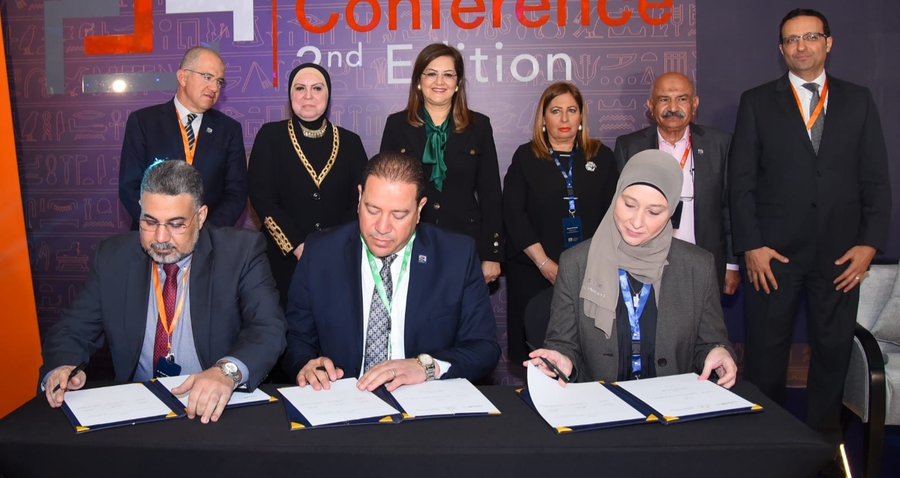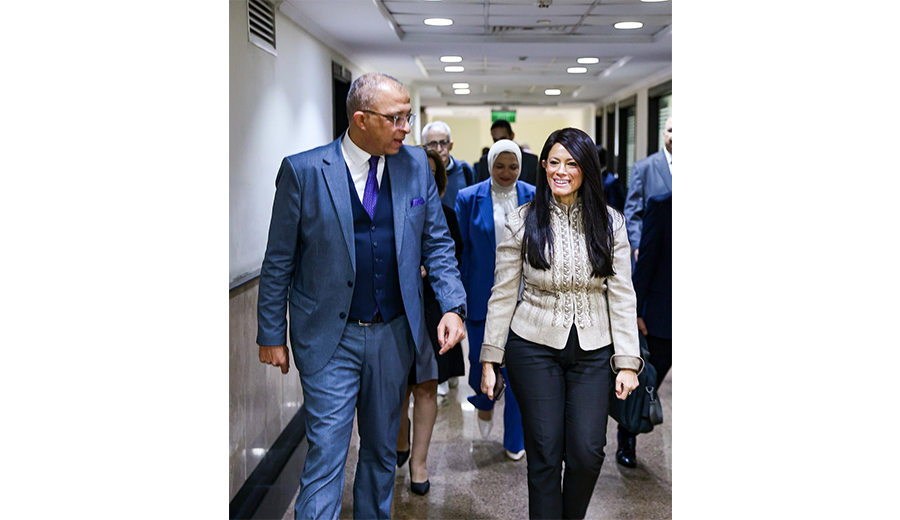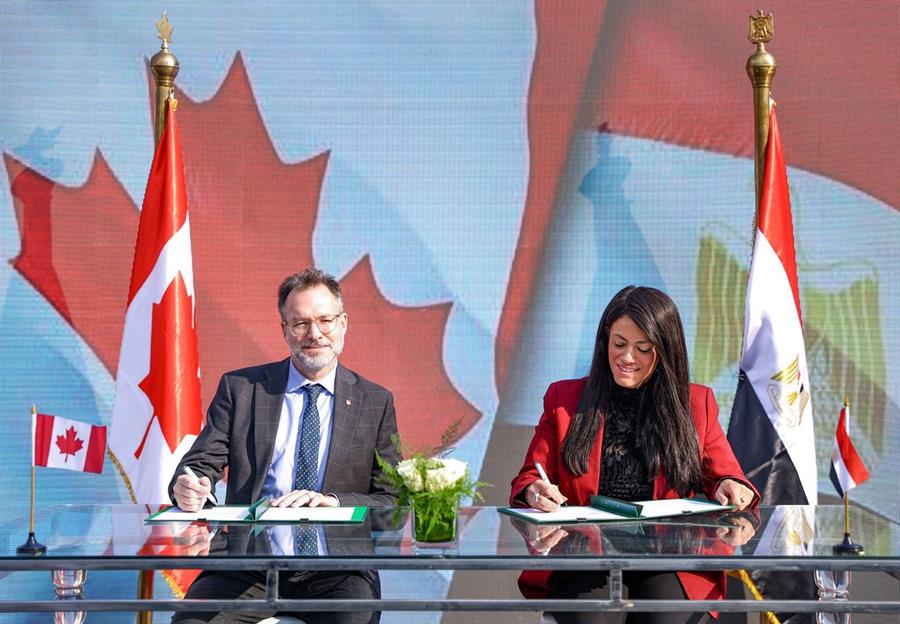Minister of Planning and Economic Development witnesses signing of MoU for the establishment of the Egyptian Business Council for Sustainability

04 March 2022
Egypt’s Minister of Planning and Economic Development, Dr.Hala El-Said signed a memorandum of understanding on the establishment of the Egyptian Business Council for Sustainability between the Ministry of Planning and Economic Development, the Egyptian Industries Union, Orman Association.
This came on the sidelines of the activities of the Sustainability and Economic Transformation in its second edition; which is held by the Union of Industries and the Orman Association in Luxor Governorate from 2-5 March; with the participation of some ministers and heads of banks and representatives of major international companies.El-Said confirmed that the signing of the aforementioned MoU comes within the framework of the leading role of the Ministry of Planning and Economic Development to achieve sustainable development and draw on impact measurement policies through effective planning, follow-up, and evaluation of government performance, to implement sustainable development agenda.She added that the signing also come with what the Ministry is doing in the formulation of the national sustainable development strategy (Egypt2030 Vision) in coordination with the ministries and the concerned and follow-up implementation, as well as follow-up to the implementation of the Sustainable Development Strategy, ensuring compatibility with African agenda 2063, and the preparation of periodic reports to assess the implementation of sustainable development goals.
The signed MoU aims to establish the Egyptian Business Council for Sustainability and to work as an institutional framework that combines development partners from government, private sector, and civil society to coordinate and integrate efforts from the three parties to the memorandum to achieve sustainable development and consistent with Egypt's vision 2030.
The Protocol also included cooperation in organizing the annual sustainability conference on time and place agreed upon by the three parties.









